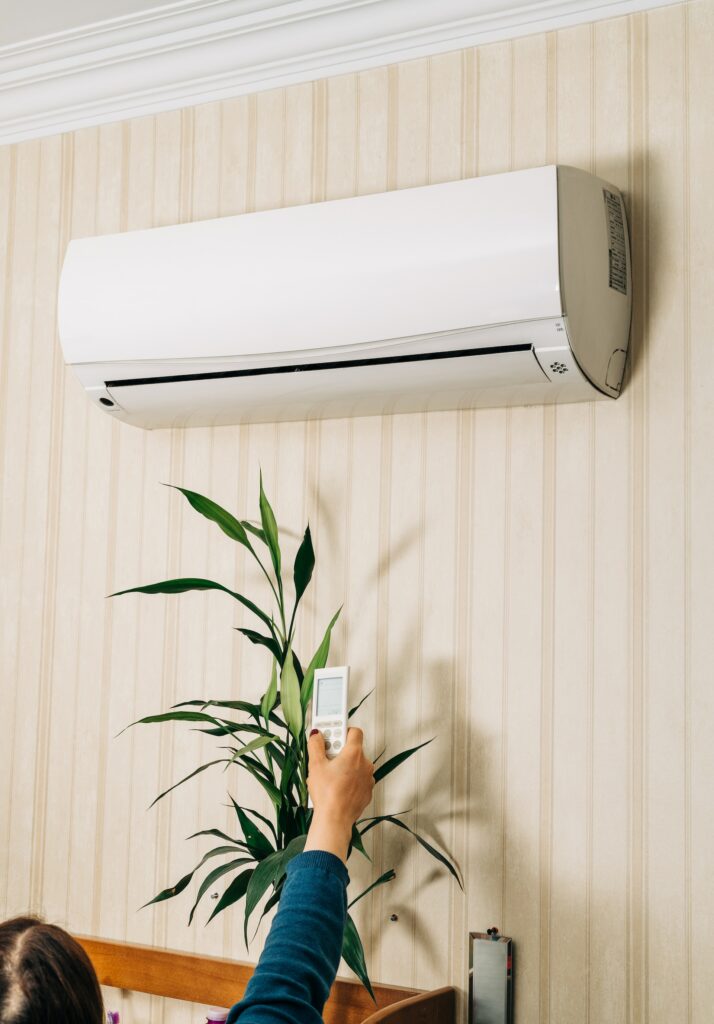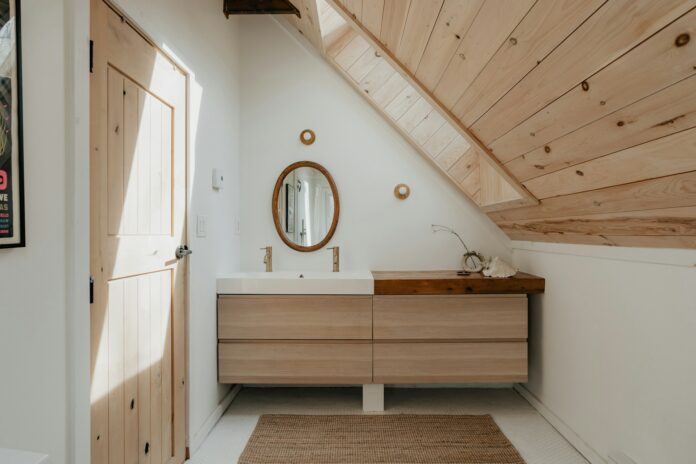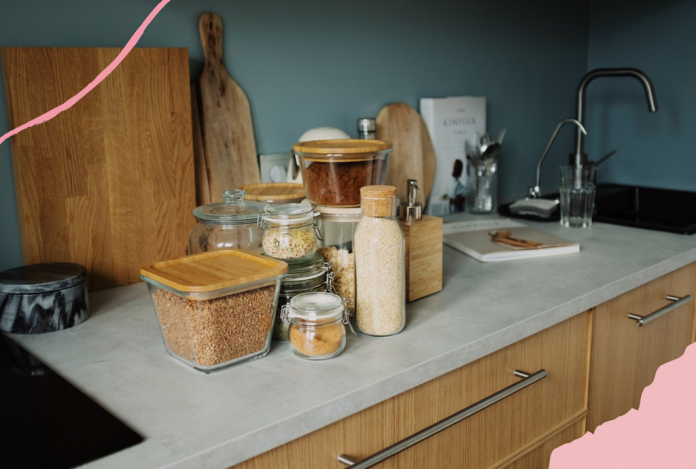Hey, we realise we’re writing this just as the depths of winter rear their ugly head, in a country that doesn’t traditionally use air conditioners at home, but with reports that increased heatwaves have pushed up demand for AC units in the UK, it never pays to be too prepared.
And considering the environmental impact of air conditioning units, if you do plan to have one in your home, it’s vital to make sure that it is running efficiently. Indeed, air conditioners consume huge amounts of energy, with inefficient AC systems having to work extra hard to maintain cold air in your home, which in turn uses more power – revealed in your energy bills and, sadly, via its impact on the planet, too.
To help your AC unit make as environmentally low an impact as possible, here’s 8 top tips on improving air conditioning efficiency at home.
Insulate Your Home
One of the biggest culprits of an AC working too overtime? A lack of proper insulation. All that effort to cool the air at home, only for you to basically throw it out of the window! It’s not the most sustainable approach, don’t you think?
Indeed, inefficient insulation means your heating and cooling systems have to work that much harder, which also results in increased wear and tear of your unit. The answer is simple; make sure your home – particularly your exterior walls – is properly insulated to maximise your home’s energy efficiency potential.
Another chunk is lost through the roof if it’s not properly insulated, and another portion flies through windows that aren’t double-glazed. Insulation helps ensure an efficient air conditioning unit, and is surprisingly affordable, at just £400 on average for cavity wall insulation for a mid-terraced house or bungalow. Make it a priority today.
Regular Maintenance
Whilst the idea of seeking air conditioning installation in the UK just a few years ago would’ve ago would have felt fanciful, now many homeowners are considering the move. Those who are should be aware that maintaining your air conditioner shouldn’t be a task that you only consider undertaking when there’s an obvious issue. Instead, regular, gentle upkeep ensures longevity from your unit.
Arrange a monthly, bi-monthly or quarterly appointment with a professional to give your AC a quick once over; these are complicated bits of kit and a professional will have a keener eye for any underlying issues.
Not only is this a wise idea for your safety and comfort, but regular maintenance will also save you money in the long run.
If you’re DIY kind of a guy or gal, rest assured that you probably don’t need to be a pro to replace the unit’s filters. When it’s time to replace them, you only need to buy filters that match your system and go ahead with the swap. Your unit’s manual will tell you the specifics of the filter’s exact size and model, and the rest is as easy as changing a lightbulb.

Increase Ventilation
Although your home’s AC is tasked with creating a comfortable home environment, ensuring that you have proper ventilation helps boost the unit’s efficiency. If some areas in your home aren’t well-ventilated, it means that your unit will have to work extra hard, costing you in higher energy bills in the long run.
To improve the circulation of the air in your home, regularly open windows and leave doors open, too. Even during the winter, experts recommend that for good air circulation and ventilation, you should open your windows three times a day.
And if you’re going all out, install ceiling fans as well as an extractor fan in the kitchen and bathroom. These fans help increase the airflow of the room by helping to move the hot air on. With an increase in airflow, your home will stay at a more desirable temperature, and hopefully, your need to have the AC on constantly will be lowered. In return, the fans will take the pressure off your AC.
Close Curtains & Blinds During The Day
It’s good practice to make a habit of closing blinds and curtains when the sun is shining brightly outside, thus naturally bringing down the temperature in your house without the need for your AC to be on. Doing so also helps save your furniture from fading…talk about killing two birds with one stone! Actually, don’t; we’re trying to be environmentally friendly here.
Install A Programmable Thermostat
Do you ever forget to turn down your thermostat before leaving the house? A simple way to deal with this is by installing a ‘smart’, automated thermostat. Programmable thermostats can be timed to adjust the temperatures as per your requirement, only clicking into life when the temperature drops below – or exceeds – a certain temperature. Doing so helps cut energy bills and is considered by experts to be an environmentally friendly move.
Clear The Indoor Vents & Clean Around Your Outdoor Units
The vents of your unit play a significant role in its smooth operation, helping the distribution of cool air throughout your home. If not checked, your AC unit may end up getting blocked, or worse, distribute dust and dirt around your house.
Therefore, you must ensure that you keep the ducts and pipes clear. Vacuum the vents regularly to ensure that the air flows freely and to improve effectiveness, schedule the occasional professional clean, too.
The connecting outdoor units require free and clear air circulation, too. If your unit is blocked by external dust or fallen leaves, twigs and debris, it will have to work extra hard to extract warm air. Make it a habit to rake leaves, cut back tall grass and clear weeds and shrubs that may have grown around the unit to best ensure its longevity. Of course, an AC cleaning service can do this all for you, with significantly more expertise and efficiency.
Clean Or Replace Your Air Filters
Whilst changing your filters might seem like an obvious task, you’d be surprised how many homeowners neglect this simple yet crucial maintenance step. Your AC’s filters are its first line of defence against dust, pet hair, and other airborne particles, and when they become clogged, your unit has to work significantly harder to maintain the same level of cooling.
The harder your unit works, the more energy it consumes—and the higher your bills climb. Most manufacturers recommend checking your filters monthly and replacing them every three to six months, depending on usage and environmental factors. If you have pets or live in a particularly dusty area, you might need to change them more frequently.
A clean filter can lower your air conditioner’s energy consumption by 5 to 15 percent. Plus, clean filters help maintain better air quality in your home, which is particularly important for those with allergies or respiratory conditions. Pop a reminder in your mobile calendar—it’s a small task that can make a massive difference to both your wallet and the environment.
Switch To Cooler LED Bulbs
Are you still using the old fashioned incandescent light bulbs in your home? If your answer is yes, then it’s time to switch. Aside from being bad for the environment in themselves, these energy-guzzling bulbs can have an impact on how effective your AC is, too.
Indeed, old incandescent bulbs can trigger your AC to consume more energy; the old-school bulbs are known to produce a significant amount of heat that can mess with your unit’s reading of room temperature. Modern energy efficient bulbs produce less heat and by switching to them, you will put less strain on your HVAC system and improve efficiency.
Should you be keen to consider other ways to make your home run smoothly and efficiently whilst leaving the least environmental impact possible, then check out these 8 budget purchases that can boost your home’s energy efficiency and value. Now, that’s the spirit!




